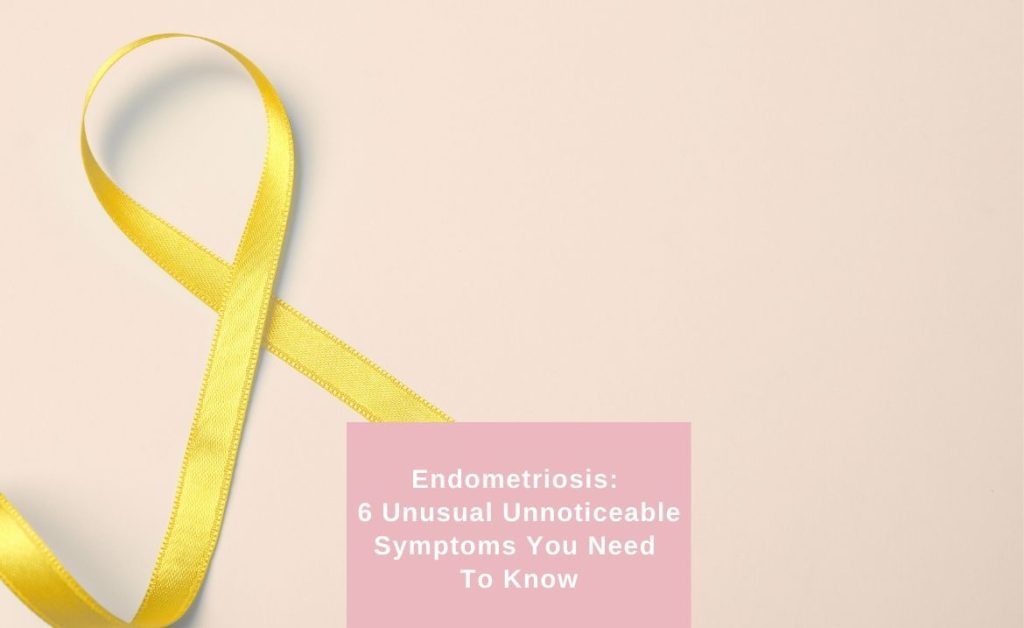March, also known as EndoMarch, recognises and raises awareness of endometriosis, a debilitating chronic condition. According to the World Health Organisation, endometriosis affects approximately 190 million women and girls of reproductive age worldwide.
Endometriosis is a common and often painful women’s health condition. The endometrial tissue that lines the uterus (womb) grows outside this layer and occasionally in other organs. It most often affects the reproductive organs but may also appear in the bowel and bladder and on rare occasions, in muscles, joints, the lungs, and the brain.
Although ongoing campaigning continues, and there is growing awareness and research around endometriosis, we have a long way to go.
So, if you think you or someone you know may have endometriosis or want to learn about it, it’s a good idea to read up on it.
To help you understand endometriosis and its symptoms, we’ve put together a quick guide that will help you be aware of the symptoms that are often easy to miss.
The signs and symptoms of endometriosis
The symptoms vary from woman to woman, depending on the degree of endometriosis. Although pain is one of the most common symptoms, it is not the only indicator. Many women will not experience any pain and only find out they have endometriosis when trying to fall pregnant.
This explains why symptoms can often go unnoticed or dismissed as another uncomfortable, painful, heavy period. Therefore, if you notice any ongoing symptoms, it’s a good idea to speak with your healthcare provider.
- Painful period: As mentioned above, painful periods are the most common symptoms associated with endometriosis. Every woman may experience a different kind of pain. For instance, some may experience painful cramps during and between periods. Some individuals may experience abdominal pain, described as a dull ache or sharp sensation.
- Painful sex: While this is an area you may be uncomfortable talking about, it’s essential you recognise something could be wrong. Endometriosis may lead to painful sex because the scar tissue sticks in your organs, causing inflammation in your pelvis. According to the Journal of Endometriosis and Pelvic Pain Disorders, 92% of women with endometriosis reported pain during intercourse.
- Painful bowel movements: Are you experiencing pain when relieving your bowels? Not a symptom you would associate with endometriosis. But the truth is, this is a symptom that occurs due to scarring in and around your bowel. This discomfort can cause constipation.
- Pain when urinating: Endometriosis can affect the bladder. Hence causing pain when you pee. A sign that can often go amiss is a suspected urine infection. Yet, this could be a sign.
- Bloating: When you think of bloating, you instantly think of IBS or other gastrointestinal conditions. So, it’s natural immediately not to associate it with endometriosis. However, it’s a symptom to keep an eye on. So, if you feel an ongoing sense of bloating, it could be a sign of endometrial scarring near your bowel, causing inflammation.
- Infertility: Due to scarring in the fallopian tube, complications can occur, causing infertility. So, if you are planning a pregnancy, it’s a good idea to talk to your doctor about a specialised treatment as soon as possible.
Other symptoms to look out for include:
- Fatigue
- Depression
- Anxiety
Getting an endometriosis diagnosis and advice
With such varying symptoms, it can be hard to decipher whether your symptoms are a sign of endometriosis. Therefore, it is crucial to get medical advice as soon as possible if you have any concerns.
At Wollongong Obstetrics and Gynaecology, you can rest assured you are in good hands. Dr Kothari will take the time to listen to and understand your concerns. After careful observation and diagnosis, he will provide you with a tailored treatment to suit your circumstances and will guide you and support you throughout your journey.

